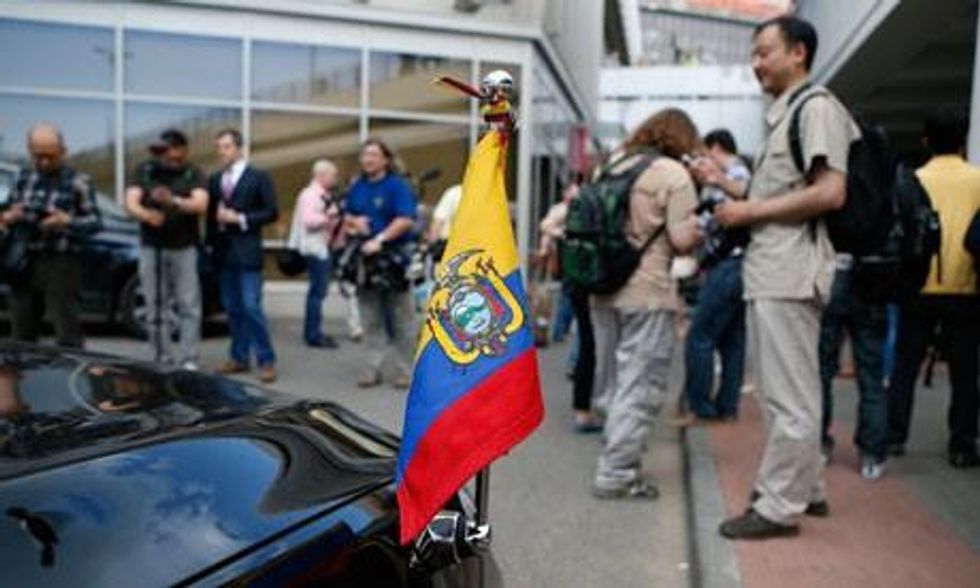If Edward Snowden can make it to Ecuador, it will be a good choice for him and the world. The government, including the president, Rafael Correa, and the foreign minister, Ricardo Patino, proved their steadfastness in the face of threats and abuse last year when they granted asylum to WikiLeaks' founder Julian Assange.
The media took advantage of the fact that most of the world knows very little about Ecuador to misinform their audience that this government "represses the media". The same efforts are already under way in the Snowden case. Without defending everything that exists in Ecuador, including criminal libel laws and some vague language in a new communications law, anyone who has been to the country knows that the international media has presented a gross caricature of the state of press freedom there. The Ecuadorian private media is more oppositional than that of the US, trashing the government every day.
Unfortunately, groups like Americas Watch (of Human Rights Watch) and the Committee to Protect Journalists, which do good work in some countries, have joined Washington's campaign against Ecuador, publishing gross exaggerations. These groups should be a bit more worried about the chilling effect that the Obama administration's unprecedented prosecution of whistleblowers has had on investigative journalism in the United States.
The great irony is not that Snowden should enlist help from Ecuador, or even Russia and China for that matter, in escaping political persecution. Has any journalist or human rights advocate criticised the thousands of Salvadoran refugees who escaped US-sponsored murder and repression in the late 1970s and 80s by fleeing to the United States, "the world's greatest purveyor of violence," as Martin Luther King once described it?
Political refugees do not choose their host countries according to whether they agree with government policy. The great irony in this case is that Ecuador gets dragged through the mud for considering asylum for a whistleblower who has been charged under the espionage act. Who - yes, ironically - probably could not even get a fair trial in the US because the media there has already convicted him.
Washington would almost certainly retaliate against Ecuador for granting asylum to Snowden. In addition to commercial sanctions, there are possible covert actions. In 2010 there was a coup attempt against Correa; although there is no direct evidence of US involvement, the police who led the uprising had a long relationship with US officials, including funding. Many in Ecuador's government believe that Washington was involved, and if it wasn't, this would be the first coup attempt in at least 60 years against a left-wing government in Latin America that Washington had nothing to do with.
The Obama administration has led a successful media campaign to reframe the Snowden case in cold war terms, and much of the media has gone along for the ride, portraying Ecuador as wanting to "poke its finger in Washington's eye". Correa must be doing this for some political gain at home too, they say. It's the exact same menu that was served up when Ecuador granted asylum to Assange, with the added primitive view that these "anti-American" troublemakers down south must have a new "ringleader" to replace Hugo Chavez.
But any of the newly independent left-of-centre governments in South America would have granted asylum to Assange. Brazil's then-president Lula da Silva was one of Assange's first (before Correa) and strongest defenders, and Brazil would likely approve an asylum request from Snowden too. Snowden, like Assange, has a well-founded fear of political persecution - especially after being charged with espionage, a crime he clearly did not commit. So as a matter of international law and of principle - including the principle of self-determination - none of these governments would participate in what WikiLeaks is correctly calling a "rendition" of Snowden to the US.
If Washington is ultimately forced to respect international law in this case, it will be because many countries, most strikingly in South America, no longer fear US retaliation. Since Snowden did a huge public service by revealing government wrongdoing, this is another example of how US citizens - contrary to what our media tells us every day - actually benefit from the development of a more multipolar world.




